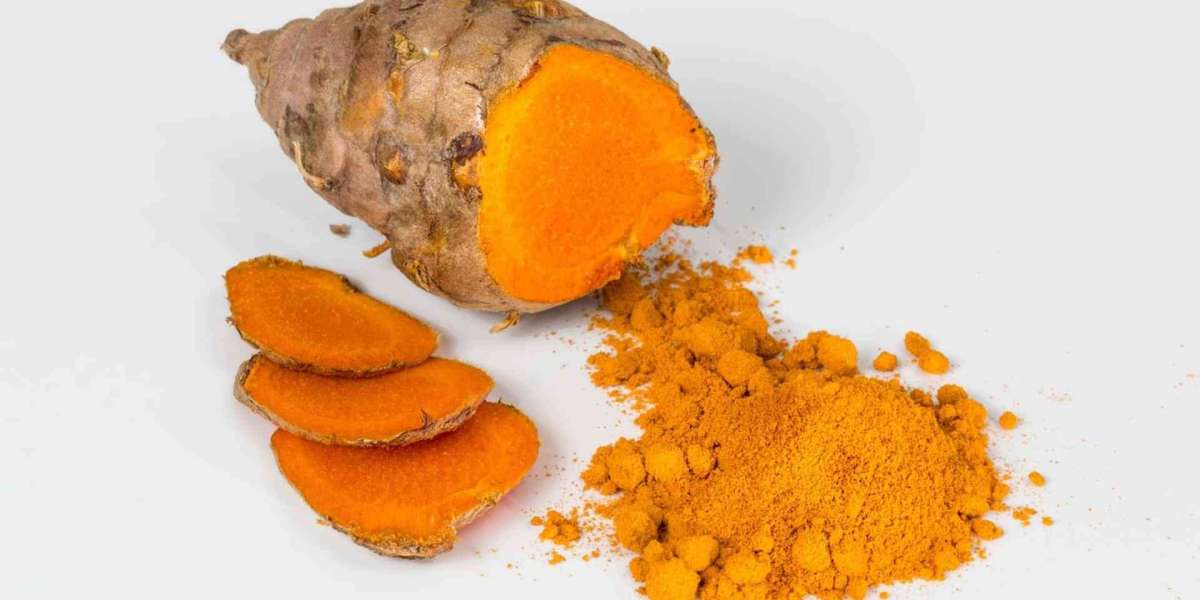Health Benefits of Turmeric, scientifically known as Curcuma longa, is a vibrant golden-yellow spice widely used in Indian cuisine and Ayurvedic medicine for thousands of years. Native to South Asia, turmeric belongs to the ginger family and is renowned for its potent medicinal properties. The primary bioactive compound in turmeric is curcumin, a powerful antioxidant and anti-inflammatory agent responsible for most of turmeric’s health benefits. Beyond its culinary appeal, turmeric is considered one of nature’s most effective and versatile healing ingredients.
1. Powerful Anti-Inflammatory Properties
One of the most well-known benefits of turmeric is its strong anti-inflammatory effects. Chronic inflammation is believed to be a root cause of many common diseases, including arthritis, heart disease, cancer, metabolic syndrome, and Alzheimer’s disease. Curcumin helps to reduce inflammation by blocking certain molecules and enzymes, such as NF-kB, that play a central role in inflammation pathways.
For individuals suffering from arthritis, turmeric may significantly reduce joint pain, swelling, and stiffness. Studies have shown that turmeric supplements can be as effective as some anti-inflammatory drugs—without the harmful side effects.
2. Rich in Antioxidants
Turmeric is loaded with antioxidants, which help protect the body from oxidative stress caused by free radicals. Free radicals are unstable molecules that damage cells and contribute to aging and diseases such as cancer and neurodegenerative disorders.
Curcumin not only neutralizes free radicals but also boosts the body’s own antioxidant enzymes. This dual action strengthens the body’s defenses and supports overall cellular health, making turmeric a valuable ally in maintaining youthfulness and vitality.
3. Supports Heart Health
Heart disease is a leading cause of death globally. Turmeric contributes to heart health through several mechanisms:
Reduces inflammation and oxidation—both of which play a major role in heart disease.
Improves the function of the endothelium, the inner lining of blood vessels. Poor endothelial function is a key driver of high blood pressure and blood clotting.
Helps reduce cholesterol levels and prevents the oxidation of LDL cholesterol.
Some studies have shown that turmeric may be as effective as exercise or certain medications in improving endothelial function, making it an excellent natural support for cardiovascular wellness.
4. Aids Digestion
Turmeric has long been used in traditional medicine to promote digestive health. It stimulates bile production, which aids in the digestion of fats. It can also help reduce symptoms of bloating, gas, and indigestion.
People with conditions like irritable bowel syndrome (IBS) or inflammatory bowel disease (IBD) may find relief through turmeric’s soothing properties. Its natural anti-inflammatory effects can calm the digestive tract, making it a gentle and effective remedy.
5. Boosts Immunity
Thanks to its antibacterial, antiviral, and antifungal properties, turmeric helps strengthen the immune system and protect the body from infections. Curcumin enhances the body’s natural defense mechanisms and modulates immune cell activity, making it useful in both preventing and managing illnesses.
In traditional practices, turmeric milk (haldi doodh) is a go-to remedy for coughs, colds, and minor infections, boosting recovery and providing comfort.
6. Promotes Brain Health
Curcumin can cross the blood-brain barrier and has been shown to increase the levels of brain-derived neurotrophic factor (BDNF), a growth hormone that functions in the brain. Low levels of BDNF have been linked to depression, Alzheimer’s disease, and other neurological disorders.
By increasing BDNF, turmeric may help delay or reverse brain diseases and age-related cognitive decline. Some studies also suggest that it may improve memory, mood, and focus, offering potential as a natural supplement for mental wellness.
7. Helps Manage Diabetes
Turmeric may be beneficial for people with type 2 diabetes by helping regulate blood sugar levels and improving insulin sensitivity. It can also reduce the risk of complications related to diabetes by addressing inflammation and oxidative damage.
Regular use of turmeric in cooking or as a supplement can assist in better glucose control, although it should be used under medical guidance if combined with other diabetic medications.
8. Natural Pain Relief
Curcumin’s anti-inflammatory action extends to providing natural pain relief. It has been found helpful in managing conditions like arthritis, muscle soreness, and even menstrual discomfort. Athletes and fitness enthusiasts often use turmeric to support faster recovery and reduce post-workout inflammation.
9. Supports Liver Detoxification
The liver plays a crucial role in detoxifying the body. Turmeric enhances liver function by promoting the production of vital enzymes that break down toxins and reduce liver inflammation. It helps protect the liver from damage caused by alcohol, environmental pollutants, and certain medications.
10. May Help Prevent and Manage Cancer
Emerging research suggests that curcumin has anti-cancer properties. It may interfere with the growth, development, and spread of cancer cells at the molecular level. It can also contribute to the death of cancerous cells and reduce angiogenesis (the growth of new blood vessels in tumors).
While not a cure, turmeric may serve as a complementary therapy in cancer prevention and treatment, especially for cancers of the breast, colon, prostate, and skin.
How to Include Turmeric in Your Diet
Golden milk: Warm milk with turmeric, black pepper, and honey.
Spices in curries: Add a teaspoon to your vegetable or lentil dishes.
Smoothies and teas: Blend turmeric into your daily drinks.
Supplements: Curcumin capsules (with black pepper extract for absorption) are widely available.
Important Note
While turmeric is generally safe, high doses or prolonged use may cause digestive issues in some people. Always consult a healthcare provider before starting turmeric supplements, especially if you’re on blood thinners, diabetes medication, or have gallbladder problems.
Conclusion
Turmeric is truly a golden gift of nature. From reducing inflammation to boosting brain and heart health, improving digestion, and supporting immunity, its benefits are extensive and backed by both tradition and science. Incorporating turmeric into your daily routine—whether in food or as a supplement—can provide a strong foundation for a healthy, balanced life.








